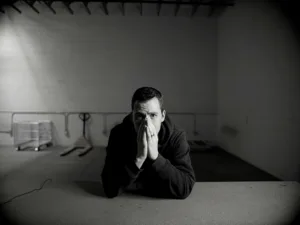Have you tried to stop on your own, but feel stuck?
Substance Use Disorder (SUD) may not be recognizable at first, but it can slowly creep up on you. Do you find it difficult to stop drinking, using drugs of any kind? You might tell yourself you can stop any time you want, but find it difficult?
You are not alone. This is a common problem many men face. The good news is there is help.
How do you know if you have a Substance Use Disorder?
SUD, formerly known as addiction or substance abuse, occurs when you continue to use a substance or multiple substances knowing it’s potentially life-threatening. SUD can also affect your work and cause a severe strain on relationships with loved ones,
Substance use disorder involves members of these 10 classes of drugs:
- Alcohol
- Antianxiety and sedative drugs
- Caffeine
- Cannabis (including marijuana and synthetic cannabinoids)
- Hallucinogens (including LSD, phencyclidine, and psilocybin)
- Inhalants (such as paint thinner and certain glues)
- Opioids (including fentanyl, morphine, and oxycodone)
- Benzodiazepines (Xanax)
- Tobacco
- Other types (including anabolic steroids and other commonly abused substances)
- Porn
Since there is a spectrum, it can be difficult to recognize the disorder. However, if you are worried at all about your substance use, it’s a good idea to seek help.
What’s the difference between recreational use and Substance Use Disorder?
Just because you use illegal drugs doesn’t mean you are suffering from SUD, though this is problematic from a legal perspective.
On the other hand, you can use legal substances such as alcohol and prescription drugs to the point that it becomes a substance use disorder.
It’s important to differentiate whether you use substances recreationally or you rely on them to get you through your day. Recreational drug use involves taking a substance in small doses without developing drug withdrawal. The drug does not usually harm you, at least in the short term. Substance Use Disorder, one the other hand, means you can’t stop yourself from taking a drug, no matter how hard you try. Then, if you do, you go into withdrawal, resulting in higher blood pressure, dehydration, and possible seizures.
How does Substance Use Disorder affect your brain?
The substances listed above activate the brain’s reward system and invoke feelings of pleasure. This reaction could be so strong you may neglect all other routine activities to obtain the feeling of pleasure you get from the drug you’re using.
What causes Substance Abuse Disorder?
Though we don’t know exactly what causes a substance abuse disorder. Substance abuse is often a maladaptive coping mechanism for untreated depression, anxiety, trauma, loneliness or alienation. We also know that the progression to substance abuse disorder typically starts off with a person who experiments with a drug or multiple substances first, then moves on to occasional use and if not kept in check, begins to abuse the drug to the point where it’s difficult to stop.
How does it affect men differently than women?
Men tend to suffer from loneliness and depression due to a lack of close male relationships and they may find other ways to cope with issues they may be dealing with.
According to the Pew Charitable Trusts, childhood trauma such as abuse, divorce, and neglect plays a role in Substance Use Disorder much more so in men than in women. Post-traumatic stress disorder (PTSD) is almost twice as likely to lead to a Substance Abuse Disorder in men than in women.














